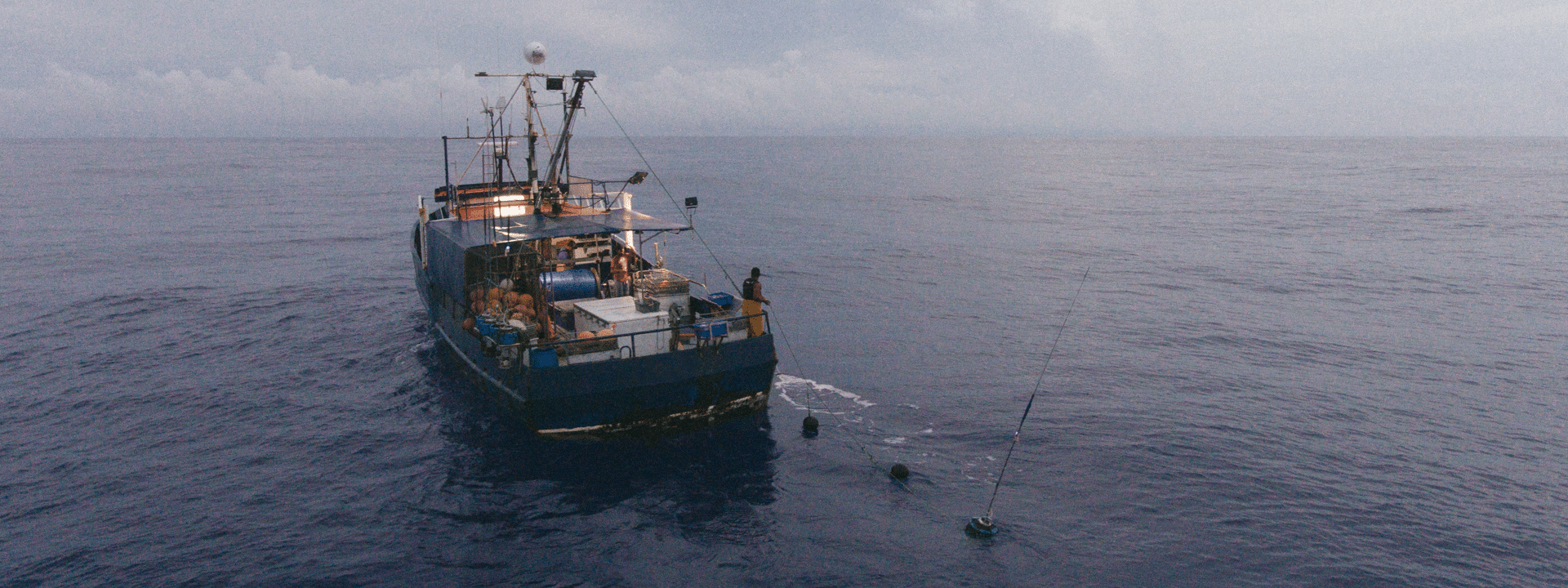In late September, Sharks Pacific participated in the Western and Central Pacific Fisheries Commission’s (WCPFC) 21st Technical and Compliance Committee (TCC21) meeting, held in Pohnpei, Federated States of Micronesia, from 23–30 September 2025. For those unfamiliar, the TCC is where the rubber meets the road in terms of ensuring the Commission’s rules are actually implemented. It provides the Commission with the technical advice and compliance assessments that inform decision-making at the annual WCPFC meeting. In short: if the Scientific Committee tells us where things stand and what we need to do, the Technical and Compliance Committee looks at how to do it and whether what we agreed to is actually happening.
This was Sharks Pacific’s first TCC as an accredited NGO observer, which is a critical role in its own right. NGO observers don’t negotiate measures, but we do ensure that conversations on compliance and monitoring don’t disappear behind closed doors. We help shine a light on whether rules are being followed, whether loopholes are being closed, and whether there is meaningful progress on protecting sharks and other vulnerable species. Our engagement and interventions, whether in support, encouragement, or critique, are part of making sure accountability and transparency remain at the core of this process. Unfortunately, this year’s TCC saw an increase in “closed sessions” for NGO observers, which represents a trend in the wrong direction.
Nonetheless, there were several developments this year worth flagging, particularly on transhipment oversight, improvements to the Compliance Monitoring Scheme (CMS), and shark protections.
Improving oversight and Verification of Transhipment
Transhipment reporting and monitoring on the high seas remains a significant weakness in the Commission’s framework, allowing illegal, unreported, and unregulated (IUU) fishing to persist. The same conditions of transhipment that hide IUU fishing also allow labour exploitation, trafficking, and other human rights violations to continue undetected. Fortunately, at TCC21, there was a renewed call to address transhipment by improving data flows, verification, and cooperation among members with respect to the practice. Proposals submitted by the Marshall Islands and Korea demonstrated significantly divergent views, with the Marshall Islands calling for a complete ban on all high seas transhipment by longline vessels while Korea tried desperately to offer a much less robust, and what we view as inadequate, approach to the issue. In the end, no agreement could be reached and the TCC just acknowledged the ongoing data gaps and the need for a more consistent approach to monitoring high seas transfers. Overall, these papers and the subsequent discussion put the spotlight on transparency and verification, which is something that Sharks Pacific believes is an imperative to address not only IUU and human rights in a general sense, but also to meaningfully address shark conservation specifically because what reporting does exist suggests that a large proportion of shark products, including and especially fins, are laundered through transhipment.

Strengthening the Compliance Monitoring Scheme
The CMS continues to evolve, and TCC21 took some notable steps forward. One area we were particularly encouraged by was the support expressed for the United States’ proposal to improve the Compliance Case File Management System (CCFS), which was an issue we weighed in on during the meeting. The updates endorsed by TCC21 include better tracking of investigation timelines, clearer categorization of infringement statuses, and provisions for re-flagging cases. These may sound very esoteric and procedural, but they are foundational to ensuring non-compliance doesn’t fall through the cracks or “expire out” without follow-through.
We also supported interventions related to streamlining audit points, refining aggregate data tables, and maintaining focus on risk-based prioritization, all of which will feed into a stronger review process heading into the big December WCPFC meeting. These improvements should make it harder for repeat non-compliance to hide behind process, and easier for developing states to access the support they need to meet their compliance obligations.
Shark Protection and the Push Against Finning
TCC21 also discussed the implementation of the new shark conservation measure (CMM 2024-05), including how to evaluate the effectiveness of “alternative approaches” for parties that have not adopted a fins-naturally-attached (FNA) policy. Sharks Pacific believes that all available evidence suggests that the only way to prevent shark finning, the practice of cutting off the fins and discarding the rest of the shark, is to require FNA only. Because of the continued resistance of some countries that insist on being able to use the alternative approaches, the TCC modestly recommended that the Commission require more detailed reporting on the use of alternative measures, including instances of non-compliance and the quantities of sharks taken under those alternatives. Sharks Pacific has consistently pushed for greater transparency here, and that perspective was reflected in strongly worded and very critical interventions during the meeting. This is an incremental but important move toward closing the loopholes that allow shark finning to persist under the guise of “equivalent” measures.
High Seas Boarding and Inspection
Another promising development at TCC21 was the progress on strengthening the High Seas Boarding and Inspection (HSBI) protocols to better support genetic sampling of catch. Until now, the lack of clear procedures and practical tools has limited enforcement officers’ ability to verify species identity at sea, especially for sharks and other vulnerable taxa that are often misreported or transhipped in processed form. Sharks Pacific was able to contribute directly to these discussions by providing an analysis of rapid molecular monitoring technologies currently available for field use, including portable qPCR and handheld DNA barcoding tools. That input helped members recognize that genetic verification is no longer a theoretical or prohibitively expensive option, but a feasible enforcement tool that can be incorporated into HSBI protocols with the right guidance and capacity support. The TCC’s recommendation to continue refining these protocols with molecular sampling in mind is a concrete step toward closing long-standing loopholes in species reporting and enforcement at sea.
Transparency in Process Matters
Although portions of the Compliance Monitoring Review (CMR) were still held in closed session over the objections of some members and observers, the pressure to improve transparency is growing. NGOs like Sharks Pacific remind delegations that accountability to the region’s people and resources doesn’t stop at the meeting room door. Every time we intervene, whether supporting a member proposal, objecting to procedural opacity, or pushing for clarity in reporting, we do so to reinforce that the WCPFC is a public institution with public responsibilities.
Looking Ahead
TCC21 set the stage for some potentially progressive decisions at the upcoming WCPFC, both in terms of tightening implementation of existing rules and advancing new measures. From transhipment monitoring to case file reform and meaningful shark conservation, there was movement in the right direction. As always, much will depend on whether these recommendations are carried forward with political will and adequate resourcing.
Sharks Pacific will continue to play its part, providing scrutiny, support, and solutions wherever we can. The people and ecosystems of the Pacific don’t benefit from promises, they benefit from practice. TCC21 gave us a few steps closer to that goal, and we’ll make sure that momentum isn’t lost before the Commission meets again.




